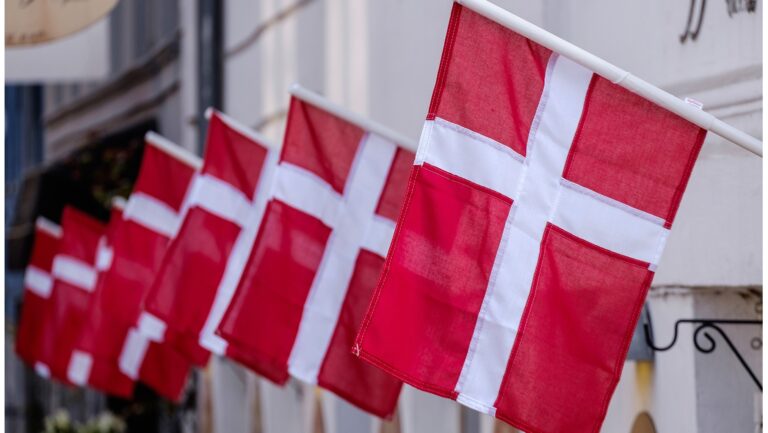On 1 November, Israel held its fifth election in three and a half years. The right-wing block, led by former Prime Minister Benjamin Netanyahu and his national-liberal Likud party, came out as the clear winner of the race. While Netanyahu’s main religious Zionist allies gained an impressive number of seats, Israel’s ‘old left’ literally shrank to the brink of nonexistence. Although the results provide Netanyahu with the opportunity to return and continue his historic tenure as prime minister, coalition talks with the religious Zionist parties will most likely be tricky both politically and policywise. What are the main lessons of the Israeli election? How stable will Netanyahu’s coalition be? Is there a way back for the Israeli left? Let’s dive in!
Israeli Parties 101
Israel’s political parties can be classified into four main groups. The first and by far the largest group is that of secular, Zionist parties. These parties derive their political identity from the statehood of Israel and Jewish national identity. Israel’s most well-known parties belong to this group, including liberal (Yesh Atid), national liberal (Likud) and left-wing parties (Labour). The second group is the one comprising Jewish religious parties. These parties derive their political identity from Judaism and Jewish religious tradition. The two parties that belong to this group (Shas and United Torah Judaism) are natural political allies of the secular right, and on many occasions were part of right-wing coalitions led by Benjamin Netanyahu. The third group is the religious Zionist parties. These parties combine Jewish nationalism and Zionism with Judaism and Jewish religious tradition. Religious Zionist parties are vehemently opposed to the establishment of a Palestinian state, and they strongly support Jewish settlements in Judea and Samaria (therefore they are often characterised as far-right in many media outlets). The religious Zionist block is also the natural political ally of the secular right, and it was the big winner of this year’s election. The fourth group is the Arab parties, including pan-Arab nationalist parties, Islamist parties and far-left parties. Arab political formations usually stay out of governing coalitions. That is why it was quite surprising that the anti-Netanyahu coalition included the Islamist Ra’am party. Now, let’s have a look at the results.
Bibi’s Back
Israel’s longest serving prime minister, Benjamin Netanyahu, managed to come back for a second time, after his first, dramatic return to the premiership in 2009. As Israel has a fully proportional electoral system with competing party lists and a 3.25 per cent parliamentary threshold, the key to winning an election for any political alliance is unification. If small parties do not reach the threshold and gain at least four mandates in Israel’s parliament, the Knesset, they don’t get any parliamentary seats and votes cast for them are lost.
Netanyahu’s success this year is down to two main factors. The first is that he succeeded in persuading the two religious Zionist parties (the Religious Zionist Party and Jewish Power) to run on a joint list. Therefore, he eliminated the chance of one of the parties not reaching the parliamentary threshold, therefore losing a large number of right-wing votes. The second factor was the left’s inability to do the same. The anti-Netanyahu camp is highly fractured, with many parties hovering on the verge of the electoral threshold. This year, the new-left Meretz party, Balad, an Arab party, and Jewish Home, an anti-Netanyahu religious Zionist party, all failed to surpass the electoral threshold, therefore a substantial number of votes were lost for the anti-Netanyahu camp. The Labour Party was also on the verge of not getting enough votes and falling out of the Knesset.
In the end, the right-wing block, including Netanyahu’s Likud, the two Jewish, religious parties and the religious Zionists got 64 mandates in the Knesset, a stable majority of four stable by Israeli standards. Coalition talks are ongoing at the moment, but Netanyahu will almost certainly return to the Prime Minister’s Office in a short time. Interestingly, some have raised the possibility of the anti-Netanyahu, right-wing National Unity joining the coalition, but such a surprising development is still far from certain.
Centrist Dreams and Left-Wing Nightmares
The election results were nothing short of catastrophic for Israel’s left-wing parties. Meretz, a popular formation amongst Israel’s urban left-wing and green voters, failed to reach the electoral threshold for the first time in its existence of thirty years. Labour, the nominal descendant of Ben-Gurion’s Mapai and later of the left-wing Alignment, was also not far from falling short of the electoral threshold. Although Labour is still in the Knesset with the minimal number of four MKs (members of Knesset), it is very likely that in the next election it will cease to be a parliamentary party.
Interestingly, the main anti-Netanyahu party, the centrist-liberal Yesh Atid had quite a good night on 1 November, despite its leader, Yair Lapid losing the premiership to Netanyahu. Yesh Atid gained seven (!) seats in the Knesset, a huge achievement in the body of 120 parliamentarians. It seems that Yesh Atid is becoming the major opposition party, but its success derives from taking away votes from other opposition parties, not from an expansionary strategy. Still, Yesh Atid’s story is quite a success story in the history of Israel’s centrist parties. Although several centrist formations appeared since the establishment of the State (General Zionist Party, Democratic Movement for Change, Shinui, Kadima), none of them managed to stay around for long. Yesh Atid’s ten-year long presence with a persistently increasing vote share makes it one of if not the most successful centrist initiatives in Israel’s history.
Shift To The Right
It was a huge shock to many when the religious Zionist, right-wing Yamina joined the anti-Netanyahu coalition, following last year’s Knesset election. In exchange, Yamina’s Naftali Bennett became prime minister for almost a year. But the political price for joining a coalition that included the Islamist Ra’am Party was quite high. Yamina’s nominal successor, the Jewish Home did not reach the threshold in this year’s election, therefore the party fell out of the Knesset. It seems that most Yamina supporters switched party and voted for a radical, emerging formation, called Otzma Yehudit (Jewish Power), making it the biggest winner of this year’s election.
The success of Otzma Yehudit, a far-right formation, alarms many Israelis. Otzma Yehudit follows a Kahanist ideology, a staunchly anti-Arab framework developed by Rabbi Meir Kahane. Its ideological predecessor, the outlawed Kach Party was even classified as a terrorist organisation by many countries. The party’s leader, Itamar Ben-Gvir is a well-known provocateur in Israeli politics who was denied entry to the Israeli Defence Forces because his views were deemed to be too extreme. Ben-Gvir and Otzma Yehudit openly argue for deporting those who are not loyal to the State of Israel, a softened stance of Kahanism that argued for the deportation of all Arabs from Israel’s territory if they don’t accept Jewish religious law.
As the big winner in this year’s election, Otzma Yehudit has quite a good position in the coalition talks. Ben-Gvir aims at taking the Ministry of Internal Security, the Ministry of Education and the Ministry of Transportation for his party in the incoming government. Netanyahu will definitely have a tough job negotiating with his new coalition partners, and the presence of Otzma Yehudit might cast a shadow on the Israeli government’s international reputation. It is telling that the anti-Netanyahu camp wanted to get rid of Netanyahu so badly that in the end they helped Netanyahu to power again, with his religious Zionist coalition partners now being more radical than Yamina ever was. Quite obviously, the opposition’s political calculations massively backfired.
Netanyahu Continued
The right-wing block’s four seat majority is quite substantial by Israeli standards. Without a major fallout with coalition partners, Benjamin Netanyahu has quite a good chance of completing a four-year term as Israel’s prime minister. Given the circumstances, Israel is in great need of a stable government. Looking at Netanyahu’s track record, he will surely return to articulating and representing Israel’s national interest, including renegotiating Israel’s fresh maritime deal with Lebanon and stepping up against any reheated nuclear agreement with Iran. Netanyahu was never afraid to confront the United States when necessary, therefore US-Israel relations might become a bit stormier, at least until a new Republican administration potentially takes the White House in 2024. Unfortunately, due to Otzma Yehudit’s participation in the coalition, Palestinian terrorism might be expected to intensify in the coming months and years, although Netanyahu was quite good at managing internal security, even by historical standards. Gas exploration will surely continue, and a dynamic economic growth (one of Netanyahu’s greatest achievements) will hopefully return.
Israel under Netanyahu was a remarkable success story. The country’s party structure predetermines a situation in which either a stable right-wing, or an instable centrist-left coalition governs. This year we saw the return of Benjamin Netanyahu and a hopefully stable, right-wing government. However, foreign policy challenges, especially Iran’s nuclear ambitions, pose a great challenge to Netanyahu’s new government, and the Prime Minister will surely have to deal with his coalition partners’ often extreme demands and Palestinian terrorism on the domestic front. The coming years require solid and competent political management. His track record suggests that Bibi is definitely up to the task.








